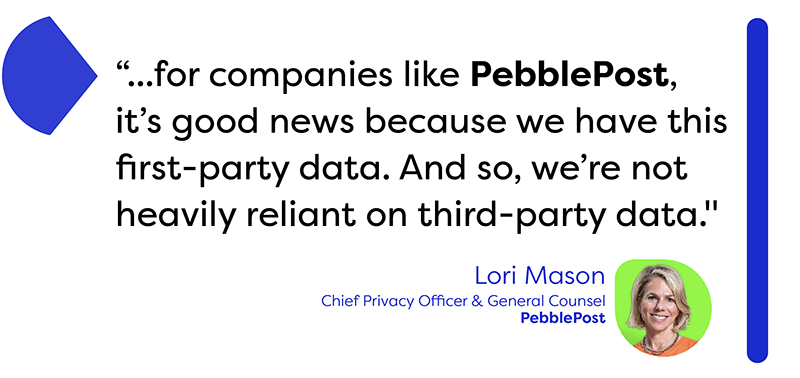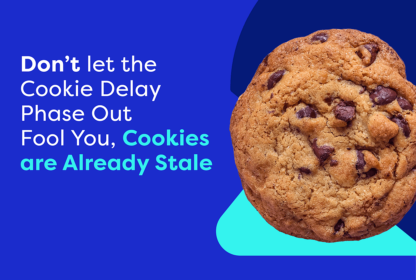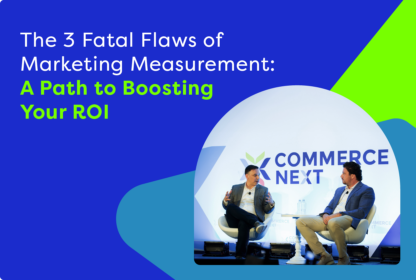Many things happening on the privacy front could change how brands market to consumers next year.
We recently interviewed Lori Mason, PebblePost’s General Counsel and Chief Privacy Officer, to get her expert take on the data privacy policies and regulations that could affect marketers for the rest of 2024 and beyond.
The American Privacy Rights Act
The most impactful update since we last caught up with Mason for a late 2023 webinar on navigating the data and privacy landscape is the American Privacy Rights Act, the latest effort to enact a national comprehensive privacy law.
The bipartisan, bicameral data privacy legislation is still in draft form and would need to go through a commenting period, so it’s still a while away from going into effect—likely at least a year, Mason predicts. There are also two potential blockers: whoever is in office after the next presidential election and the fact that a federal law would preempt all state privacy laws, including the California Privacy Rights Act.
Mason says the federal government could take much of what California already does regarding transparency and disclosure in their law. As a reminder, in November 2020, California voters approved Proposition 24, which amended the CCPA and added additional privacy protections that began on January 1, 2023. These included the consumers’ right to correct inaccurate personal information about a business and to limit the use and disclosure of sensitive personal information collected about them.
“I think the biggest thing that the industry was waiting to see was if they were going to make it closer to GDPR, which is that you have to use an opt-in rather than an opt-out basis,” Mason said. “And it’s still an opt-out basis for non-sensitive data.” Sensitive data for these purposes includes religious, political, and financial data.
So, is this federal privacy act good or bad news for marketers?
“For many companies that are doing ad tech and behavioral targeting, they are collecting the fact that the consumer has been here or there, and then retargeting them with ads; it doesn’t necessarily require the nuances of the sensitive data,” Mason said.
Mason said one area that could get interesting is precise geolocation. With identity resolution, companies are starting to pull in more device IDs and more precise geo-location, which is currently consent-based.
Overall, Mason said the biggest pro of federal legislation is that it’s one law for all. The biggest con is that it could result in potentially bigger and stricter penalties.
Above all, advertisers should continue to remind consumers of the value exchange inherent in relevant, responsible advertising.

With Google’s latest delay in deprecating third-party cookies now pushed back to 2025, there’s a chance that this change and federal privacy law could hit simultaneously.
“Certainly, everybody should be preparing for all of it,” Mason said. “Because simultaneously, if you have deprecation of third-party cookies and you also have all these consumers who are opting out of selling and sharing data…it doesn’t mean they’re opting out of advertising.”
What can marketers do to stay ahead? Mason said they can develop good relationships with their consumers and get them to opt in through brand loyalty and interesting content.
“I think for companies like PebblePost, it’s good news because we have this first-party data. And so, we’re not heavily reliant on third-party data,” she said.
As our CEO Jacob Ross recently put it, “PebblePost is in a class of solutions that fit the bill: cookieless, addressable marketing that drives performance and incremental lift at scale accurately and clearly, powered by durable identity, and built around high-quality shared first-party data.”
So, ultimately, keep complying with current privacy law while keeping an eye on possible federal legislation next year and actively implementing alternatives to third-party cookies (ahem, like the household address) to prepare for this next era of advertising.



